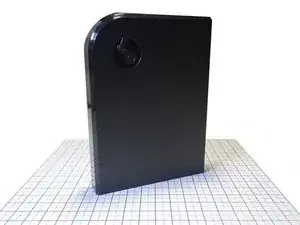
Steam Link Disassembly
These are some common tools used to work on this device. You might not need every tool for every procedure.
The Steam Link is a set-top box designed to enable streaming games from a computer to a separate monitor or TV. The Steam Link was first introduced by Valve in 2015 with the intention of enabling people to play games in any room of their house. The product was discontinued in 2018 with Valve shifting their attention to a software version of Steam Link which works on mobile devices, some smart TVs, and the Raspberry Pi microcomputer. The device originally sold for $50, but after it was discontinued the remaining stock was practically given away for the price of $2.50.
You can identify the Steam Link (the hardware box, not the software) by looking on the bottom of the device for the the model name "Steamlink." You can see the location of this label in the iFixit disassembly guide or the teardown by All About Circuits. The Steam Link is made from shiny black plastic and is shaped like a flat rectangular box. One corner of the rectangle is rounded off and the box has a Steam logo near this rounded corner.
Inside, the Steam Link uses an ARM processor and a graphics chip made by Vivante. It has a small bit of memory and storage soldered to the circuit board inside. The hardware isn't too powerful, but it doesn't need to be since all the heavy lifting is done by the computer you stream games from. The software that runs on the Steam Link box is based on the Linux kernel version 3.8. More information is available on the Steam Link Github page.
Ports
Wireless
Processor
Memory
Storage
Graphics